Alain Berset: ‘I faced unprecedented brutality’
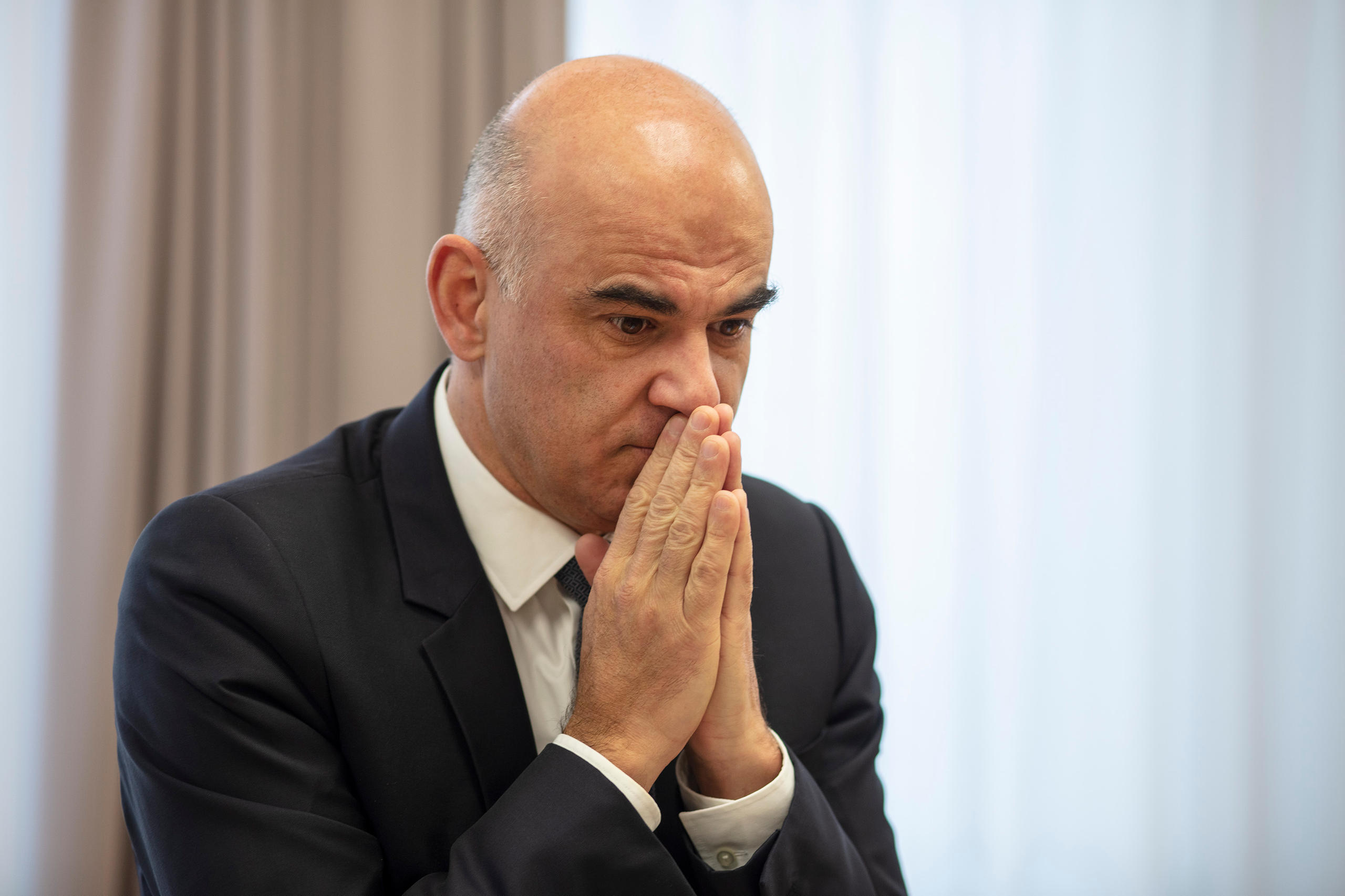
After ten years in government, Alain Berset takes on the rotating role of Swiss president for the second time, starting today. The Social Democrat recalls the threats he faced during the pandemic, discusses his role as head of state, and gives his views on the instability of the current era.
SWI swissinfo.ch: You are now the longest serving member of the federal government. Over the past two years, you have had to deal with the Covid-19 pandemic, criticism, and private affairs being widely reported in the media. After going through all that, do you still have the energy to govern?
Alain Berset: I am the most experienced member of the government, but I am still the youngest, so I have all the energy necessary to keep going. It’s extremely important to have stability at a time when we are experiencing a period of instability and the international context is turbulent. Experience is very valuable in confronting this situation.
SWI: Staying in government for more than a decade is more common in Switzerland than elsewhere. In neighbouring countries, political change happens more frequently. Are these long periods in office a good thing?
A.B.: This stability is one of the great strengths of our institutions. It is also an advantage in our dealings with other countries, because we are always up to speed on the issues and know the background and how to proceed in our work.
Alain Berset was elected to the government in 2011. Then 39, he became one of the youngest government members in history. Since then, he has headed the interior ministry, where his responsibilities include health, social insurance and culture.
Born in Fribourg in 1972, he is married with three children. He studied politics and economics at the University of Neuchâtel. After working as a scientific researcher and political advisor, he joined the Senate, the upper chamber of the Swiss parliament, in 2003 and was its president in 2009.
Berset held the rotating Swiss presidency for the first time in 2018. On December 7, he was elected for a second time by the Federal Assembly (the two chambers of parliament combined) for the year 2023. He received 140 votes out of 181 valid ballots. He had obtained a much better score (190 votes out of 210 valid ballots) during his first election to the presidency in 2018.
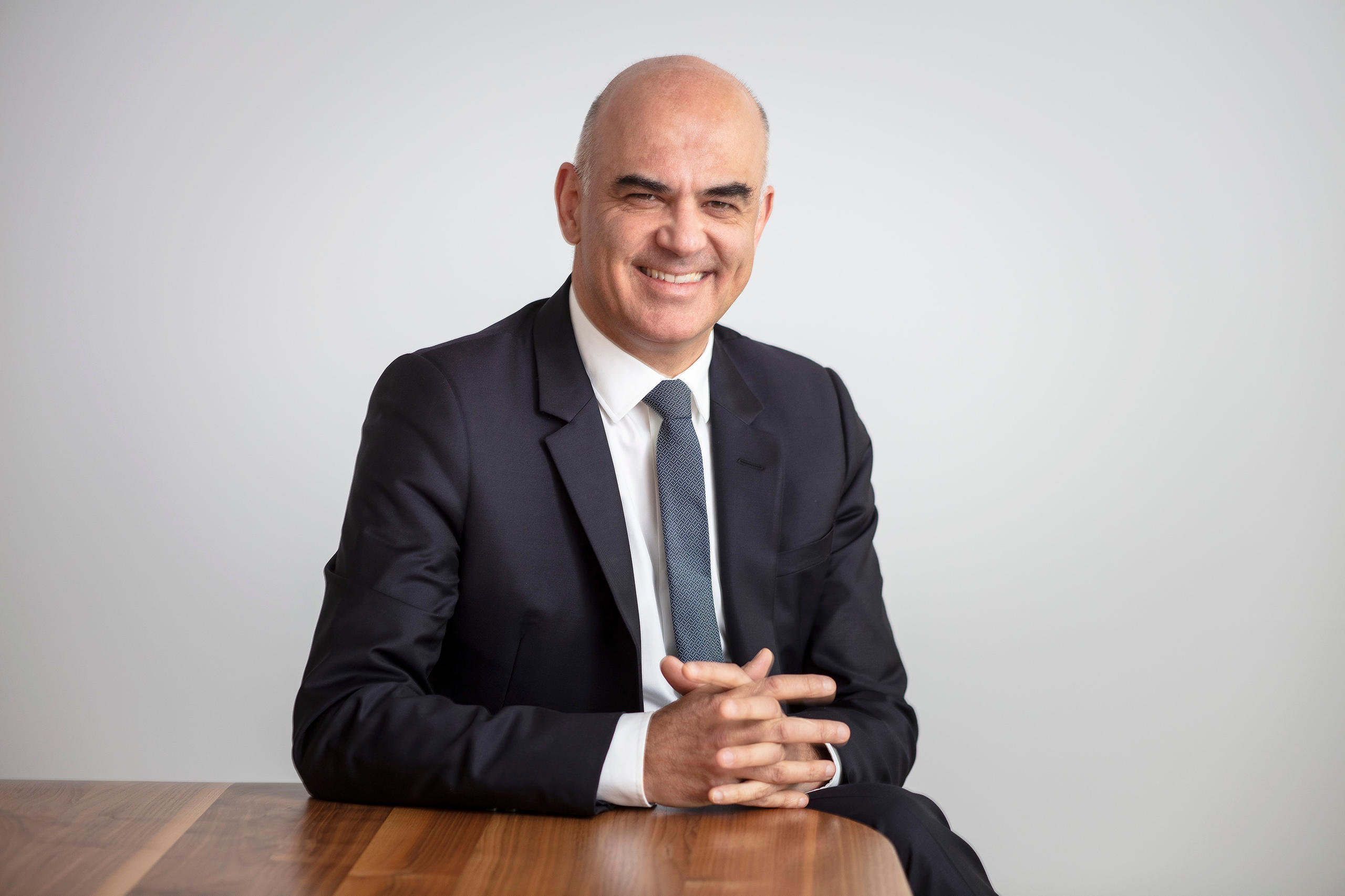
SWI: What catchword would you choose to define your presidential year?
A.B.: I have always been wary of slogans and I don’t have a ready-made motto. Experience teaches us that every year brings its own surprises. After the pandemic and in this current unstable situation, the role of the president is to strengthen social cohesion in the country. In this regard, fighting against inequality and for equal access to healthcare, education and culture has been my priority since I entered politics.
SWI: You will continue to lead the interior ministry. However, some people in your party would have liked you to take over the foreign ministry. Was this your choice or did the right-wing majority in the government force it upon you?
A.B.: I’m not going to tell you about matters discussed in cabinet meetings, which are confidential. Members of the government are under obligation to distribute cabinet posts in a way that puts the country in the strongest possible position. That is all that counts. I also consider it a privilege to be the head of the interior ministry, because it is the department that has the most impact on people’s daily lives.
SWI: As interior minister, you will once again be required to handle the complex issue of pension policy. After you had to defend reform of state pensions against opposition from your party, will you succeed in convincing the right-wing with your plan to reform the second pillar of the pension system?
A.B.: For the first time in almost 30 years, we have succeeded in reforming the state pension system and stabilising its financing. This is a very good thing, because this insurance is the one that best protects those in most need. As regards the second pillar, we have succeeded as a government in bringing the social partners together to cooperate on a common project which favours women and those on the lowest incomes.
No one disputes the need for reform, but we must do it in such a way that pensions are guaranteed. People live on francs and cents at the end of the month, not on concepts or principles. Even if it’s not easy in parliament, we will have to come up with a reform that can win over a majority of the population.
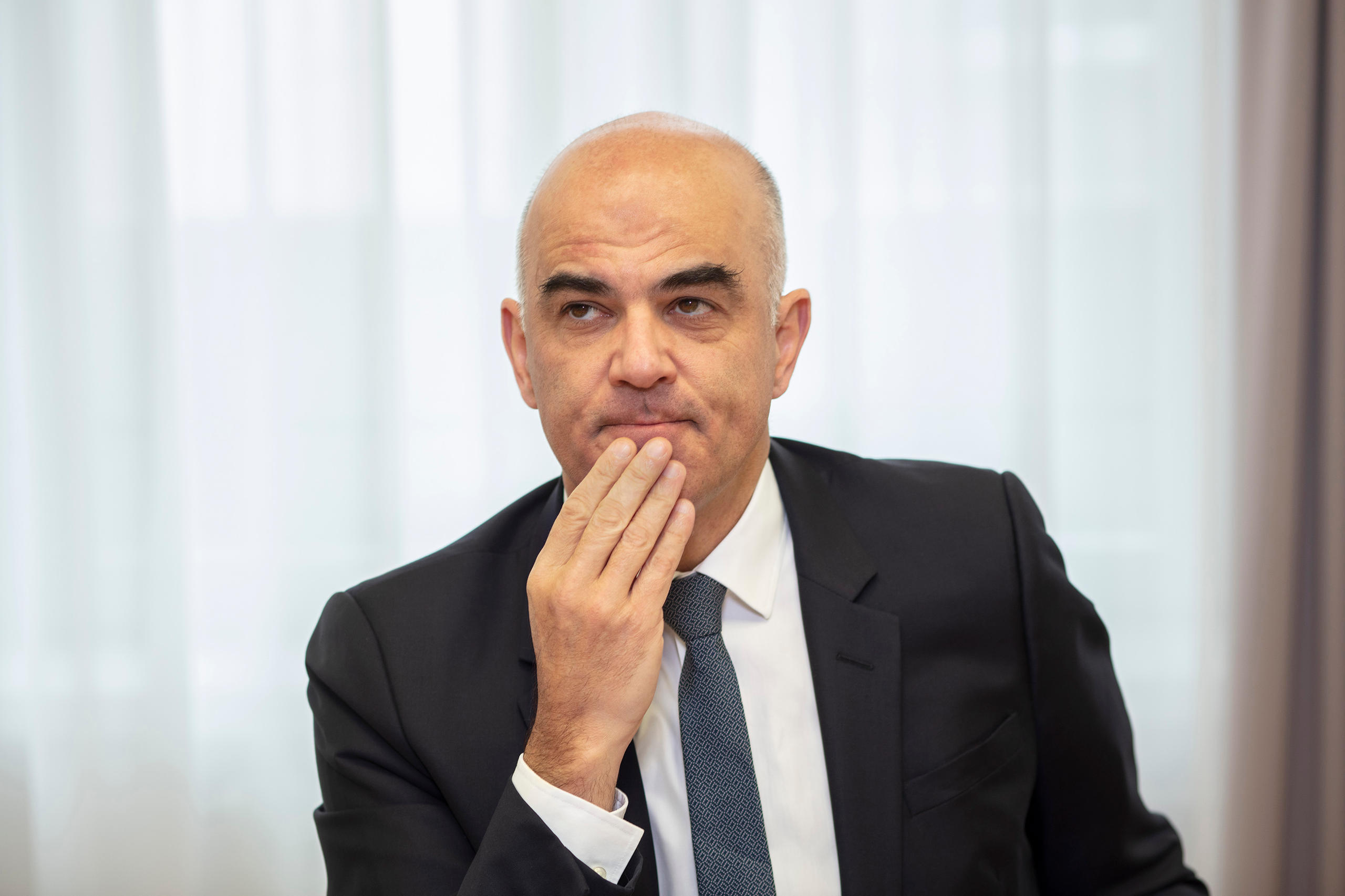
SWI: During the pandemic, you were the target of much criticism and threats. You even had to be placed under police protection. Were there moments when you felt discouraged and wanted to give up?
A.B.: To be honest, yes. I experienced instances of brutality unprecedented in the history of our institutions. As a result of frontal attacks by some politicians, a part of the population felt it had permission to go too far. I had moments when I felt dejected and asked myself: “why are you doing all this?” I kept going because I have an excellent team and because it was about doing the best for the country. You don’t become a minister just to inaugurate new buildings or have nice parties. We are there for the difficult times. I must also say that I really felt supported by the whole government. During this period, the government was much more united than is sometimes imagined.
SWI: What was the most difficult moment for you during the Covid-19 crisis?
A.B.: The workload reached a level I would never have imagined to be endurable, coupled with political pressure that went beyond anything I had ever experienced before. But these are things that can be managed. The most difficult part was when, amid this general anxiety, a small group of isolated individuals started to issue violent threats. This is not at all in the Swiss spirit. To be honest, it was completely beyond the pale. Let’s not forget that we are the only country in the world where pandemic management was twice put to a popular vote. And that was in the middle of the crisis.
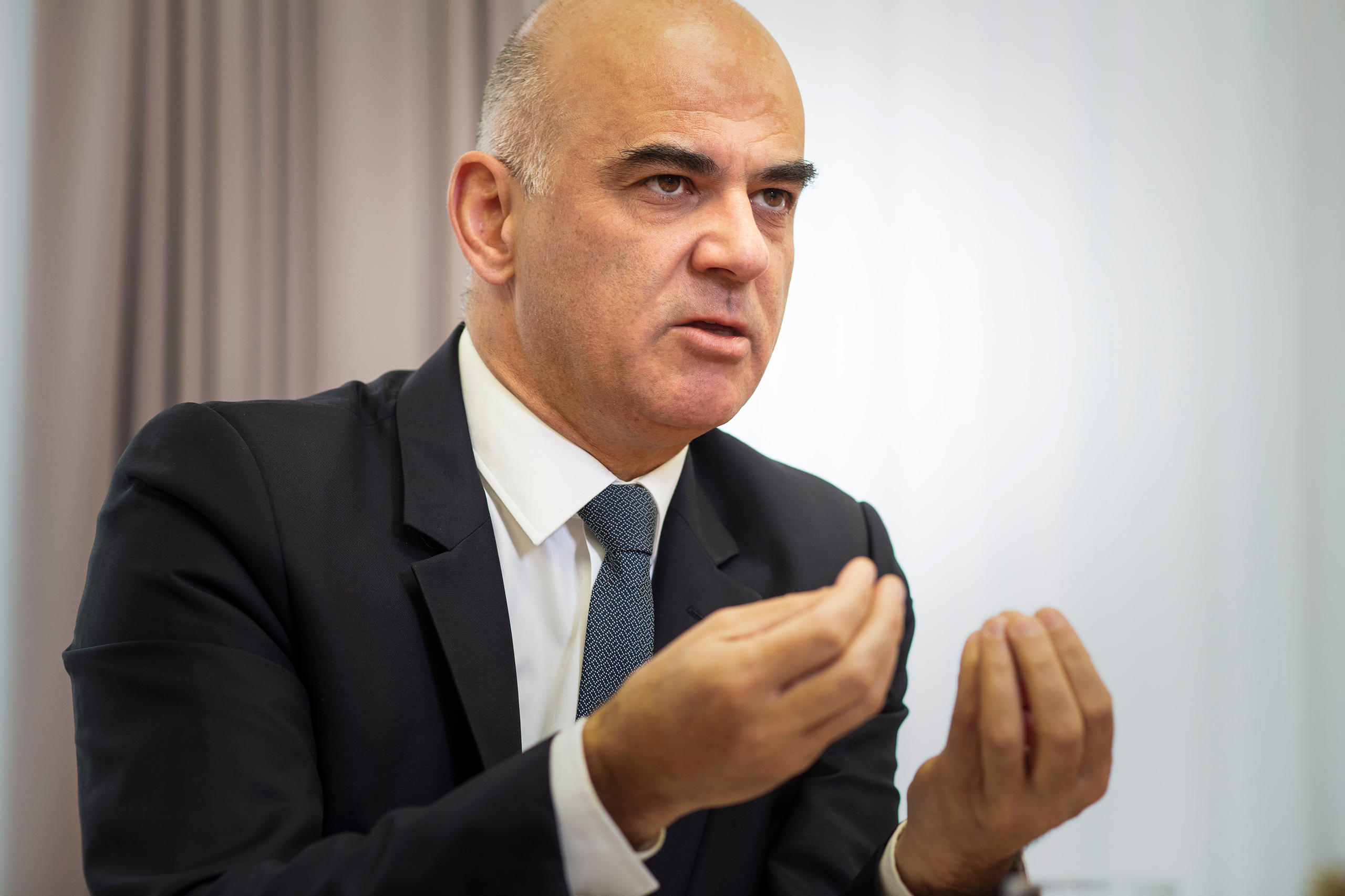
SWI: The Covid-19 crisis is now under control, but the country faces new crises: the climate crisis, the energy crisis, the war in Ukraine, inflation. Has it become normal to govern in times of crisis?
A.B.: I think so, even if it would be wrong to say that before the pandemic everything was fine and that now we are in a state of permanent crisis. We have experienced very difficult times in the past, but the consequences for society were different from those of the Covid-19 crisis. The situation in Ukraine had already deteriorated seriously in 2014, although the conflict that began in February 2022 has taken on dimensions that worry us enormously. Having said that, we have grown more alert to this insecurity and we are prepared.
SWI: Is the Swiss federalist system able to cope with this new situation?
A.B.: It is a very resilient system, which absorbs shocks and responds to them. We may not always react as quickly as others, but even during the coronavirus crisis we could see that federalism is not a hindrance. As we saw during the pandemic, we must now learn to pursue our federalism in a slightly different way, with more flexibility.
SWI: This winter and probably in the winters to follow, the Swiss will have to live with the threat of an energy shortage. Is the country ready to respond to an energy crisis?
A.B.: The energy issue has already been on the agenda for a long time, even before the war in Ukraine. It is to be expected that energy prices will stabilise at a high level. But the government, the cantons and the companies involved have taken the necessary steps in terms of supply. We must remain cautious and follow the recommendations, but I believe that we can be relatively relaxed about this winter.

SWI: If Switzerland manages to get through this winter without a shortage, the problem will not be solved. What are the long-term solutions?
A.B.: Switzerland has a strength that is the envy of many countries: we have a very high proportion of hydroelectricity in our energy mix. In recent months, impressive work has been done to ensure that the dams are at maximum level, which is normally never the case at this time of year. It is therefore possible to manage our reserves, even if this is not enough.
Diversifying energy sources is key, and our country still has work to do in the area of renewable energies. The government’s energy strategy must now be implemented. It’s also extremely important to keep in touch with the countries around us. We are part of a global network – isolation is not an option.
SWI: As Swiss president, you will also play a central role in European policy in 2023. Is it possible negotiations will soon resume, after talks on a framework agreement were abandoned in May 2021?
A.B.: Switzerland has a fundamental interest in a stable and well-structured relationship with the European Union. For a few months now, we have been holding exploratory talks with Brussels, and these are showing some progress. The government will now have to take stock of these discussions and decide how to continue them.
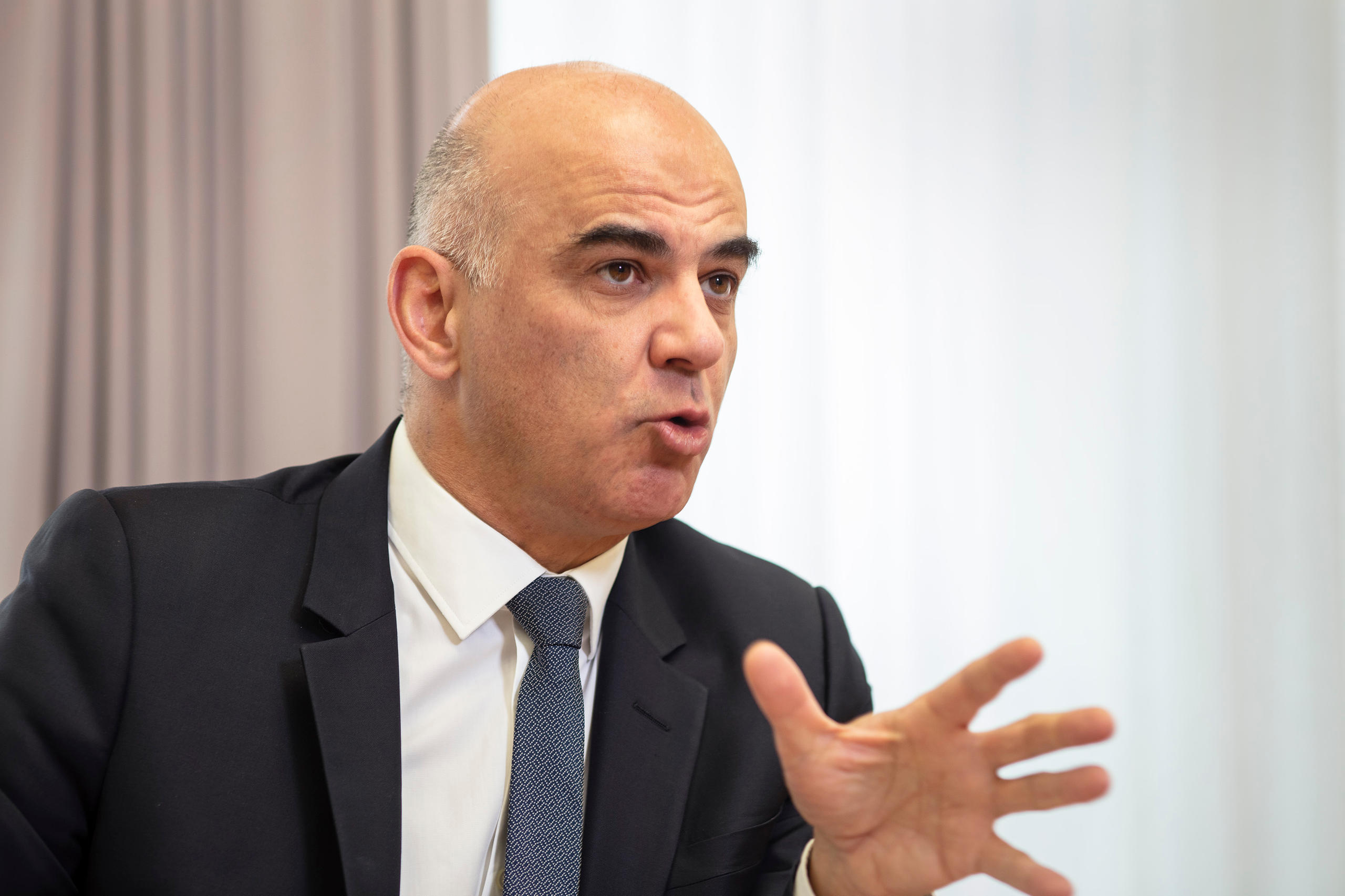
SWI: In the context of the war in Ukraine, Swiss neutrality has been the target of much criticism abroad. For the time being, the government has decided not to change its neutrality policy. Is the status quo sustainable?
A.B.: It is the only option! Switzerland is a country with a very long humanitarian tradition. Its role in international conflicts has been stable, clear and well defined for a long time, which is a great strength. Switzerland is neutral, but not indifferent! The conflict in Ukraine has reminded us of this with particular force.

In compliance with the JTI standards
More: SWI swissinfo.ch certified by the Journalism Trust Initiative






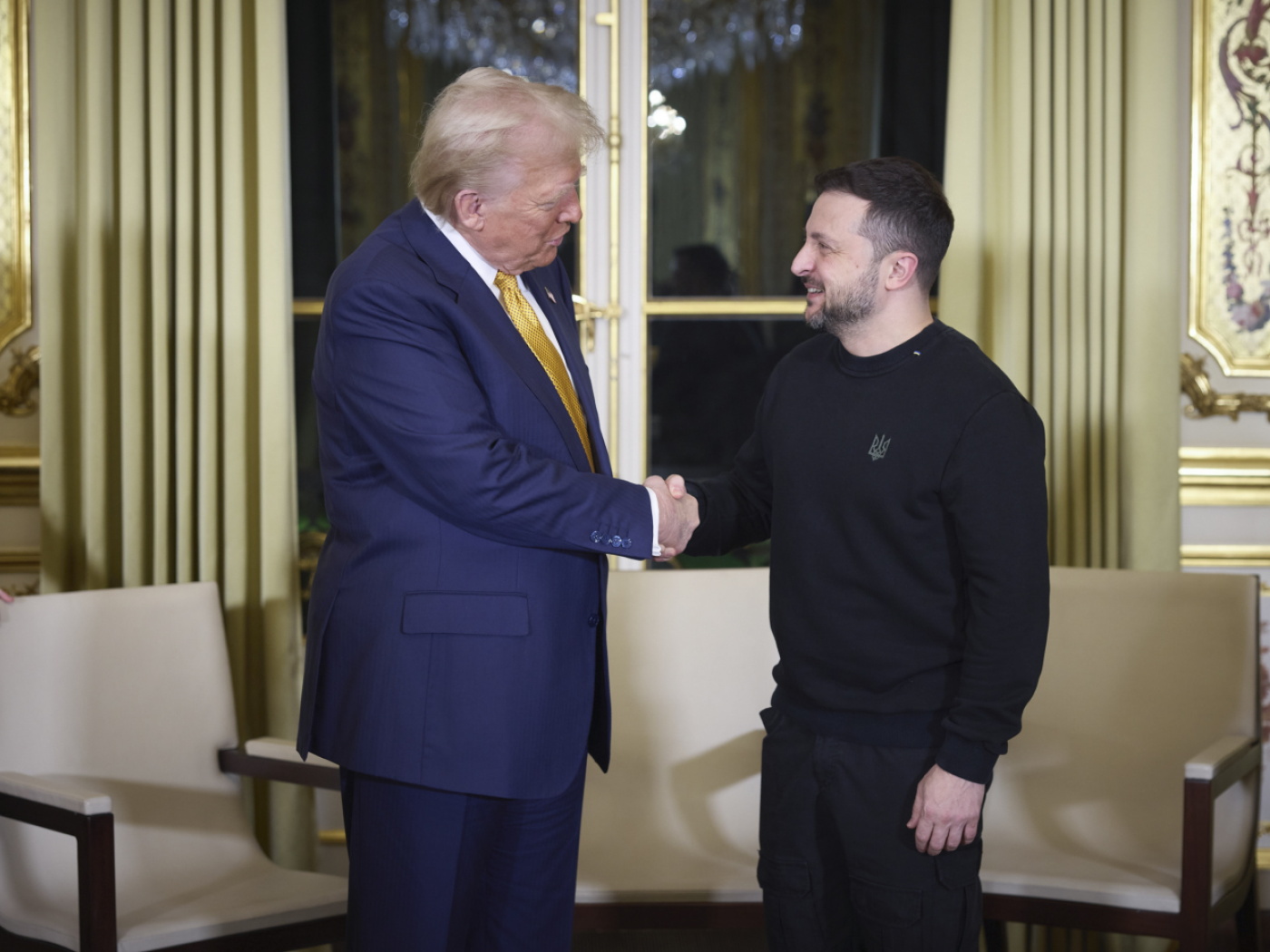



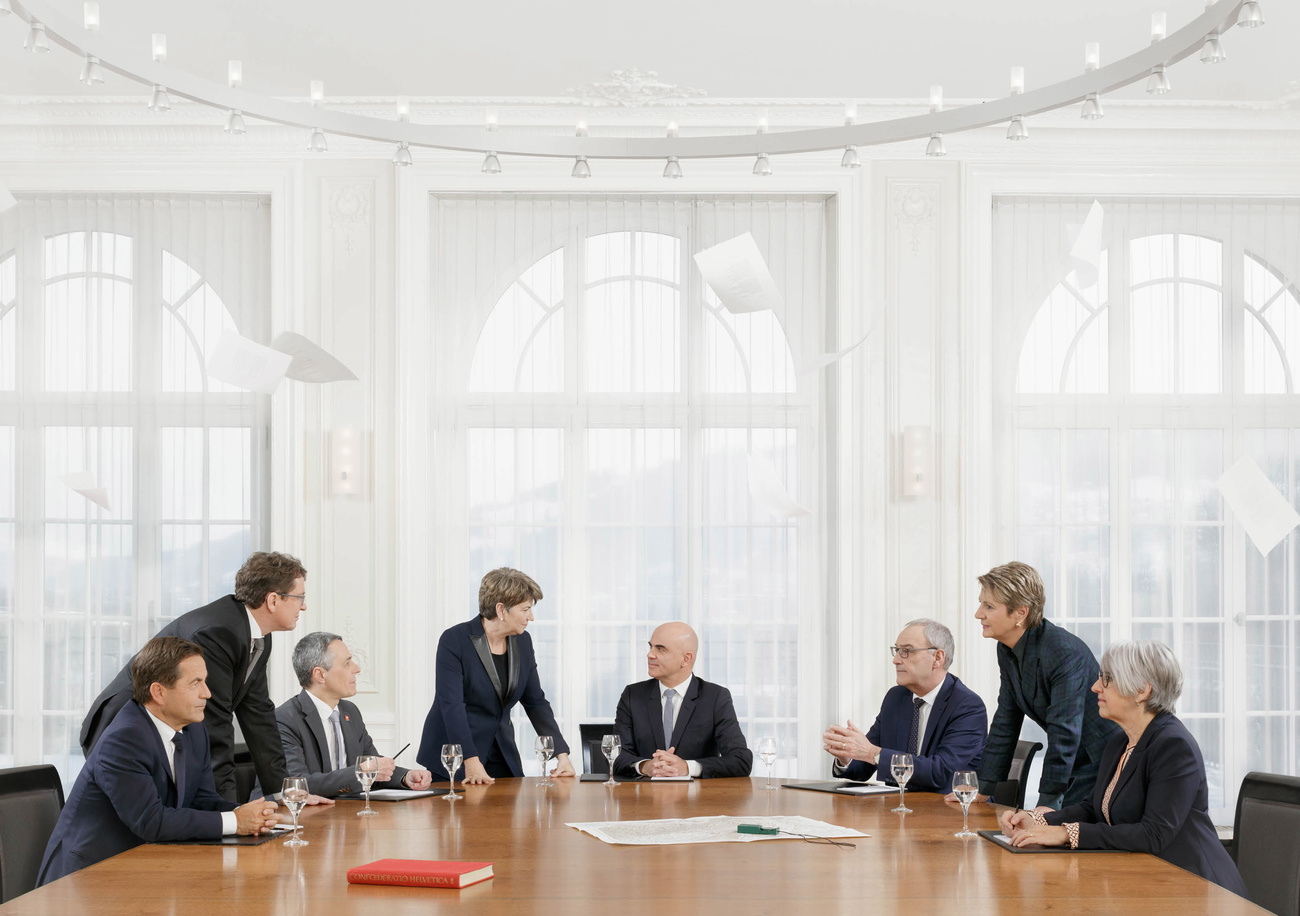



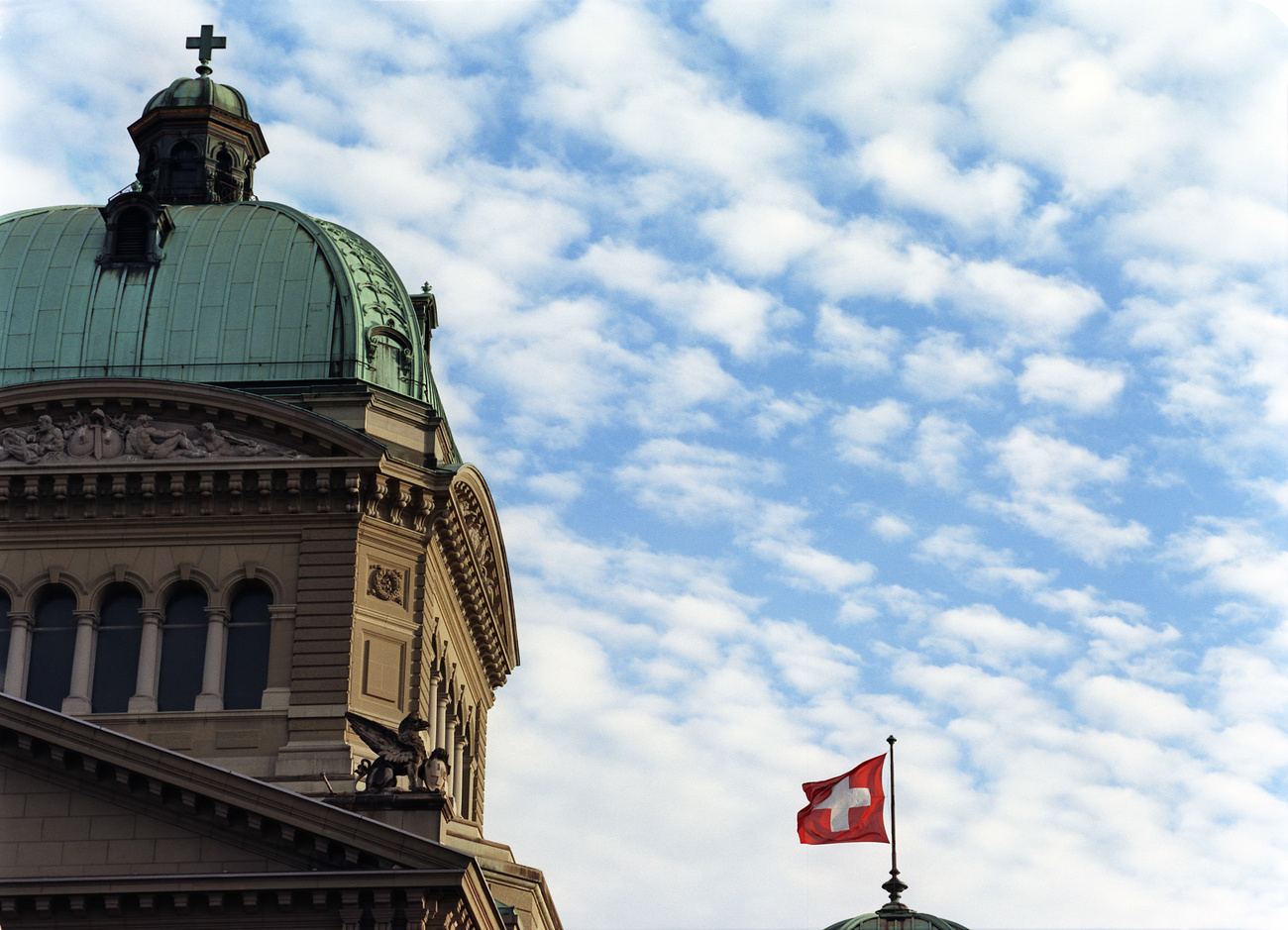
You can find an overview of ongoing debates with our journalists here . Please join us!
If you want to start a conversation about a topic raised in this article or want to report factual errors, email us at english@swissinfo.ch.